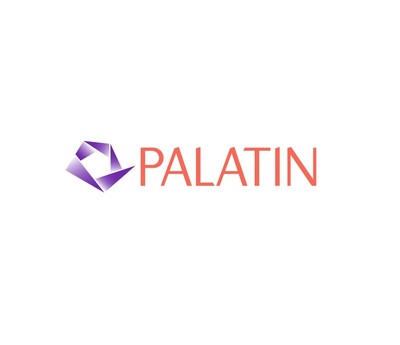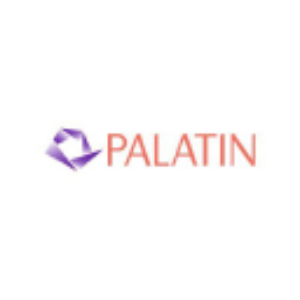Palatin Announces Database Lock for PL9643 MELODY-1 Pivotal Phase 3 Clinical Trial in Patients with Dry Eye Disease (DED)
Top-Line Results Expected in February
MELODY-1 has two co-primary efficacy endpoints: one clinical sign of DED and one clinical symptom of DED. If one or both co-primary end points are met, the study will be deemed a success and the secondary end points will be evaluated using a hierarchical testing strategy.
"We are excited by the database lock and that data analysis by the independent statisticians has commenced. We look forward to reporting top-line results from the PL9643 MELODY-1 pivotal Phase 3 clinical trial later in February," said Carl Spana, Ph.D., President and CEO of Palatin. "I want to thank our clinical team, our study sites and our independent service firms for their dedication and collaborative efforts."
The pivotal Phase 3 MELODY-1 trial is a multi-center, randomized, double–masked and vehicle–controlled study, that enrolled 575 patients at sites in the
The remainder of the Phase 3 program, which includes the Phase 3 safety and efficacy study MELODY-2 and the open label MELODY-3 study are anticipated to commence patient enrollment in the second half of calendar year 2024.
About Dry Eye Disease (DED)
Dry eye disease is a common inflammatory disease that, left untreated, can become extremely painful and lead to permanent damage to the cornea and vision. DED affects the cornea and conjunctiva of the eye resulting in irritation, redness, pain, and blurred vision. It is estimated to affect over 20 million people in
About Melanocortin Receptor Agonists and Inflammation
The melanocortin receptor ("MCr") system has effects on inflammation, immune system responses, metabolism, food intake, and sexual function. There are five melanocortin receptors, MCR1 through MCR5. Modulation of these receptors, through use of receptor-specific agonists, which activate receptor function, or receptor-specific antagonists, which block receptor function, can have medically significant pharmacological effects.
Many tissues and immune cells located in the eye (and other places, for example the gut and kidney) express melanocortin receptors, empowering our opportunity to directly activate natural pathways to resolve disease inflammation.
About Palatin
Palatin is a biopharmaceutical company developing first-in-class medicines based on molecules that modulate the activity of the melanocortin receptor systems, with targeted, receptor-specific product candidates for the treatment of diseases with significant unmet medical need and commercial potential. Palatin's strategy is to develop products and then form marketing collaborations with industry leaders to maximize their commercial potential. To learn more about Palatin, please visit us on www.Palatin.com and follow us on Twitter at @PalatinTech.
Forward-looking Statements
Statements in this press release that are not historical facts, including statements about future expectations of Palatin Technologies, Inc., such as statements about Palatin products in development, clinical trial results, potential actions by regulatory agencies including the FDA, regulatory plans, development programs, proposed indications for product candidates, and market potential for product candidates are "forward-looking statements" within the meaning of Section 27A of the Securities Act of 1933, Section 21E of the Securities Exchange Act of 1934 and as that term is defined in the Private Securities Litigation Reform Act of 1995. Palatin intends that such forward-looking statements be subject to the safe harbors created thereby. Such forward-looking statements involve known and unknown risks, uncertainties and other factors that could cause Palatin's actual results to be materially different from its historical results or from any results expressed or implied by such forward-looking statements. Palatin's actual results may differ materially from those discussed in the forward-looking statements for reasons including, but not limited to, results of clinical trials, regulatory actions by the FDA and other regulatory agencies and the need for regulatory approvals, Palatin's ability to fund development of its technology and establish and successfully complete clinical trials, the length of time and cost required to complete clinical trials and submit applications for regulatory approvals, products developed by competing pharmaceutical, biopharmaceutical and biotechnology companies, commercial acceptance of Palatin's products, and other factors discussed in Palatin's periodic filings with the Securities and Exchange Commission. Palatin is not responsible for updating events that occur after the date of this press release.
Palatin Technologies® is a registered trademark of Palatin Technologies, Inc.
![]() View original content to download multimedia:https://www.prnewswire.com/news-releases/palatin-announces-database-lock-for-pl9643-melody-1-pivotal-phase-3-clinical-trial-in-patients-with-dry-eye-disease-ded-302052721.html
View original content to download multimedia:https://www.prnewswire.com/news-releases/palatin-announces-database-lock-for-pl9643-melody-1-pivotal-phase-3-clinical-trial-in-patients-with-dry-eye-disease-ded-302052721.html
SOURCE Palatin Technologies, Inc.









